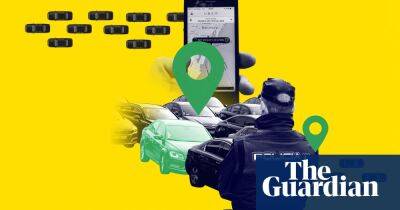Uber’s privileged access to politicians shows the lobby system urgently needs to change
The Uber files are extraordinarily revealing about the ride-hailing app’s lobbying operations across Europe. The company’s extensive and ruthless tactics were exposed this week after the career lobbyist Mark MacGann, who led Uber’s efforts to win over governments, leaked thousands of documents to the Guardian. They look like a prime example of corporate capture. Corporate or regulatory capture happens when corporations dominate decision-making and are able to influence outcomes to suit their interests. And, from Paris to London to Brussels, far too many politicians seem to have fallen under Uber’s spell.
Easy access to decision-makers, whether face to face, by email or by text message, has clearly been at the heart of Uber’s lobby strategy. The company has cultivated relationships and merrily schmoozed political leaders and ministers across the world.
The Uber files is a global investigation based on a trove of 124,000 documents that were leaked to the Guardian by Mark MacGann, Uber's former chief lobbyist in Europe, the Middle East and Africa. The data consist of emails, iMessages and WhatsApp exchanges between the Silicon Valley giant's most senior executives, as well as memos, presentations, notebooks, briefing papers and invoices.
The leaked records cover 40 countries and span 2013 to 2017, the period in which Uber was aggressively expanding across the world. They reveal how the company broke the law, duped police and regulators, exploited violence against drivers and secretly lobbied governments across the world.
To facilitate a global investigation in the public interest, the Guardian shared the data with 180 journalists in 29 countries via the International Consortium of Investigative Journalists (ICIJ). The
Read more on theguardian.com

























